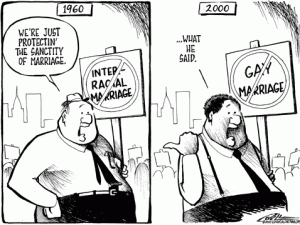February 2012

Love
„Universals that stretch across cultures are rare and tell-tale“
-The Ascent of Man, J. Bronski
From eighteenth dynasty Egyptian love poetry to the present day with the latest smash hits by Rihanna, there is evidence that love is a topic that never goes out of fashion.
It’s the month of love and romance as the majority of the world celebrates the 14th day of February as Valentine’s Day. Celebrating love is certainly not a wholly Western practice, with many countries putting their own spin on the practice of expressing romantic love…
Japan: The Japanese actually have two days dedicated to love. The first on February 14th when females bestow gifts to their partners or any other significant males in their lives. The favour is returned one month later on March 14th, known as the White Day, by men.
Chocolate plays an important role on these days as there are two different chocolate gifting traditions. The first practice is to gift males who are colleagues, bosses, friends with giri-choco, ‚Giri‘ meaning obligation, so these chocolate gifts have no romantic connotations.
Husband’s, boyfriend’s and lover’s are given the more special chocolate gift of hon-mei, which are handmade by the women as store-bought chocolates would not signify true love.
China: The Chinese celebrate love on the 7th day of the 7th lunar month of the Chinese calendar. The day is known as the Festival of the Double Sevens or the Night of the Sevens. Besides the usual exchange of flowers, chocolates and small gifts, there are also colourful rituals for the day that couples partake in. These include couples visiting the Temple of the Matchmaker to pray for their future happiness and their possible marriage. Singles also visit the temple to ask for their chance at love.
India: it is interesting to note that Valentine’s Day really only gained popularity in the early 90’s in India. Apart from the exchange of gifts such as chocolates, cards, etc, the hype surrounding Valentine’s day starts weeks in advance with special television progammes and festivals.
In any language, love is something that gets people talking. As this is a blog on a psychologist’s website, you may be wondering what the link is between love and mental health. Well…
Crazy in Love
‚Love is a sickness full of woes, All remedies refusing‘
Hymen’s Triumph, Samuel Daniel
While love is a highly lauded phenomenon, if we look closely we see that it is not an entirely pleasant experience. Rather, it is an amalgam of pleasure and pain, it can catapult a person from heaven to hell and back again in an instant. It emobodies melancholy and rapture, the sacred and the profane.
Is it a coincidence that being in love is often closely associated to mental instability? A serious mental affliction where one is ‚Crazy in Love‘, ‚Head over Heels‘, Falling in Love, Mad about Someone, Love sick, etc.
Outside the realm of literature, the first person to explore the psychological effects of love was the philosopher Plato. He made the link between falling in love and being lovesick and attempted to explain how the two were often experienced simultaneously.
He proposed, in the semantics of his time, that when a person sees their lover, their sould is reminded of the state of perfection it revelled in before birth. This kindles the regeneration of the soul, which is described as the regrowth of its wings. The soul ‚pulsates‘ and afflicted with sensations of ‚pricking‘, ‚irritation‘, and ‚pain‘, as the wings develop. At the same time the sould also experiences pleasure, as the pain is related to the original memory of perfection.
By the tenth century, well before their Western counterparts, Arabic doctors and scholars had amassed knowledge of the workings of the body and the mind. Among the mental afflictions was ‚Ishq‘- love sickness or love madness. The origins of this condition were spiritual, the meaning of the word was to have excessive religious fervour, however due to the fact that the term had a sexual connotation many scholars refrained from using it in religious texts. Thus it lost it’s spiritual undertones and was used solely to describe the excessive or obsessional love for another person. There is a strong link, here too, between love and emotional instability.
Eventually with the renaissance, enquiry became a focus in Europe, and so too medical investigations. The Europeans became concentrated on Melancholy (which at that point was considered a medical condition) and often ascribed it to being in love. The term ‚falling in love‘ also gained popularity at this time, to fall in love was like falling over, apparently by accident and not intentional. It was also like falling sick, an illness that struck suddenly and left the victim weak.
Why do we fall in love?
Through the ages falling in love has been associated with numerous (less than appealing) symptoms, such as sleeplessness, weeping, emaciation, unsociability, physical weakness, loss of appetite, anxiety, depression, the list goes on. And the question remains, why do we fall in love? Why is it still such a trophy to be won and prized?
One answer lies with the evolutionsists. Darwin’s description of natural selection: ‚Multiply, vary, let the strongest lilve and the weakest die‘, meant that organisms became increasingly well adapted to their specific environments in order to survive. According to evolutionary theory, mental phenomena can be seen as adaptations. So to understand emotion better we can ask: ‚what purpose does it serve?‘ An example is that of fear- the experience of fear (psychological and physiological) prepares us for an encounter with an aggressor or for escape.
When it comes to love, the answer lies with sexual reproduction. Love is said to prepare the mind and body for action and establishes behaviour to increase the likelihood of reproductive success. The obsessional nature of love (the daydreams and thoughts of the loved one) ensures that the loved one is not forgotten. Love apparently takes command of the reward and punishment centres of the brain. When the lover is in the presence of the loved one the experience is one of delight, however, on separation the lover is punished with feelings of heartache and loss. This reward-punishment structure encourages prolonged periods of contact. The establishment of such a pair-bond also ensures the survival of any offspring.
There are also religious and spiritual explanations of why we fall in love, but perhaps one of the best accounts comes from that hallowed place, with it’s cornucopia of knowledge, glamour and mystery: Hollywood.
In the 1996 movie, The Mirror Has Two Faces, Barbra Streisand’s character, Rose, gives a lecture on love and says:
‚Think of this. Sex was always the fatal love potion. Look at the literature of the time. All consummation could lead to was madness, despair or death. Experts, scholars and my Aunt Esther are united in one belief: True love has spiritual dimensions, while romantic love is a lie. A myth. A soulless manipulation.
The question is, why do we buy it? Because, myth or manipulation, we all want to fall in love. That experience makes us feel completely alive. Our everyday reality is shattered, and we are flung into the heavens. It may only last a moment, an hour, but that doesn’t diminish its value. We’re left with memories we treasure for the rest of our lives. I read an article awhile ago that said, ”When we fall in love, we hear Puccini in our heads.” I love that. His music expresses our need for passion and romantic love. We listen to La Bóheme or Turandot, or read Wuthering Heights, or watch Casablanca, and a little bit of that love lives in us too. So the final question is: why do people want to fall in love when it can have such a short shelf life and be devastating? I think it’s because, as some of you may already know… while it does last, it feels f@*%ing great‘



